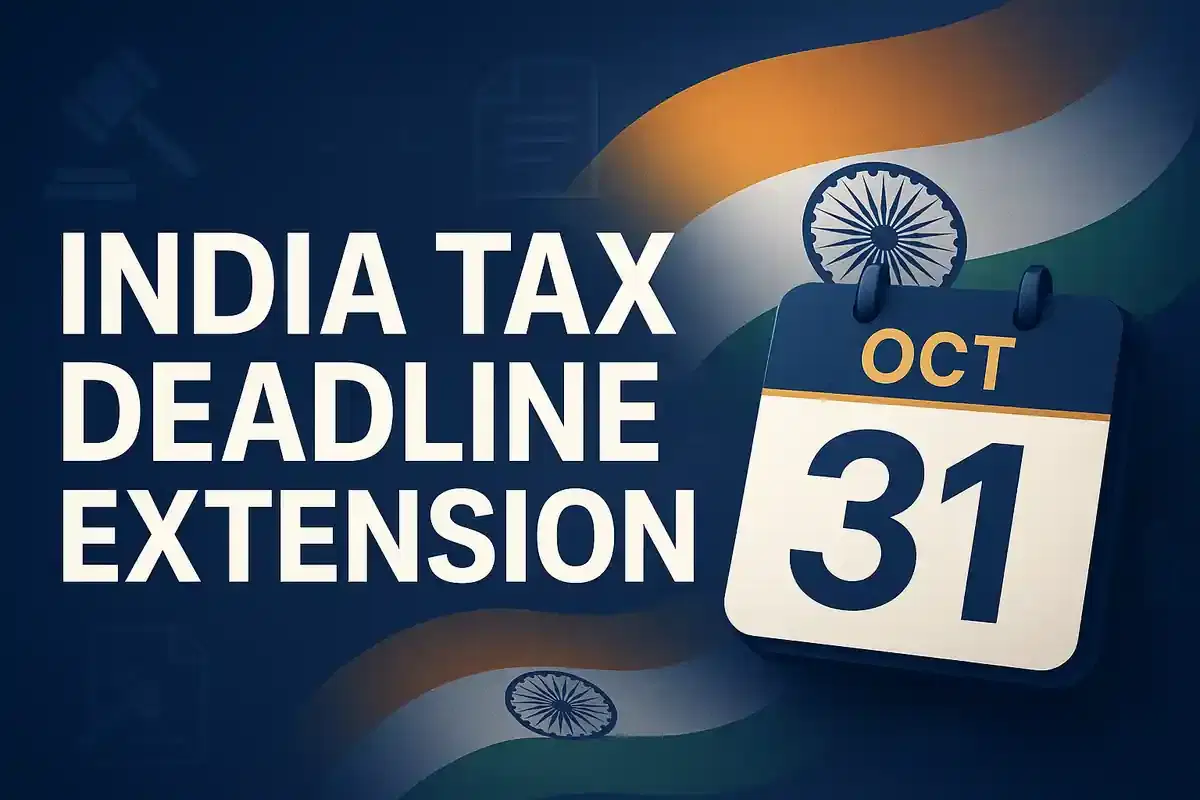India Extends Tax Audit Deadline Amidst Court Interventions on Filing Gaps
Economy
|
29th October 2025, 8:21 AM

▶
Short Description :
Detailed Coverage :
A tax audit report is a mandatory document for certain businesses in India, prepared by a chartered accountant to verify financial records and ensure compliance with tax laws. It covers aspects like tax deductions, TDS, GST payments, and other financial compliances, offering a consolidated view of the business.
For Assessment Year 2025-26, the Central Board of Direct Taxes (CBDT) initially extended the deadline for furnishing the tax audit report under Section 44AB from September 30, 2025, to October 31, 2025. This created an issue as the Income Tax Return (ITR) filing deadline for audited cases also remained October 31, 2025, eliminating the usual one-month buffer.
To resolve this, High Courts have intervened. The Gujarat High Court directed the CBDT to maintain the statutory one-month gap, implying the ITR due date for audited cases should be November 30, 2025. The Punjab & Haryana High Court also issued directions for a similar extension.
Failure to file the tax audit report on time can attract a penalty of 0.5% of turnover/gross receipts or Rs. 1.5 lakh, whichever is lower. Penalties may be waived under Section 273B if there's a reasonable cause. Non-compliance can also lead to increased scrutiny from the Income Tax Department.
Taxpayers cannot individually request an extension; only the CBDT can grant it through notifications in cases of widespread issues.
Impact This news directly affects a large number of taxpayers and businesses in India by clarifying compliance timelines and potential penalties. It ensures a smoother filing process by maintaining the expected gap between audit reports and ITRs, reducing administrative burden and anxiety for businesses. Rating: 7/10.
Difficult Terms:
Tax Audit Report: A report prepared by a chartered accountant that verifies the accuracy of a taxpayer's financial records and compliance with tax laws. Section 44AB: A section of India's Income-tax Act, 1961, which specifies the requirement of a tax audit for certain businesses and professionals based on their turnover or gross receipts. Assessment Year (AY): The year in which income earned during the previous financial year is assessed for taxation. For example, income earned in the financial year April 1, 2024, to March 31, 2025, is assessed in Assessment Year 2025-26. Central Board of Direct Taxes (CBDT): A statutory authority under the Department of Revenue, Ministry of Finance, Government of India, responsible for administering direct tax laws. Income Tax Return (ITR): A form filled by taxpayers to declare their income, calculate tax liability, and file it with the Income Tax Department. TDS (Tax Deducted at Source): A mechanism where a person responsible for paying a specific income is required to deduct tax at the source before making payment. GST (Goods and Services Tax): A comprehensive indirect tax levied on the supply of goods and services in India. Turnover/Gross Receipts: The total value of sales or services rendered by a business during a specific period. Section 273B: A section of the Income-tax Act, 1961, that provides for the waiver of penalties if the taxpayer proves that there was a reasonable cause for the failure to comply with the provisions. Transfer-pricing report: A report that documents and justifies the pricing of transactions between related entities located in different tax jurisdictions to ensure they are conducted at arm's length.